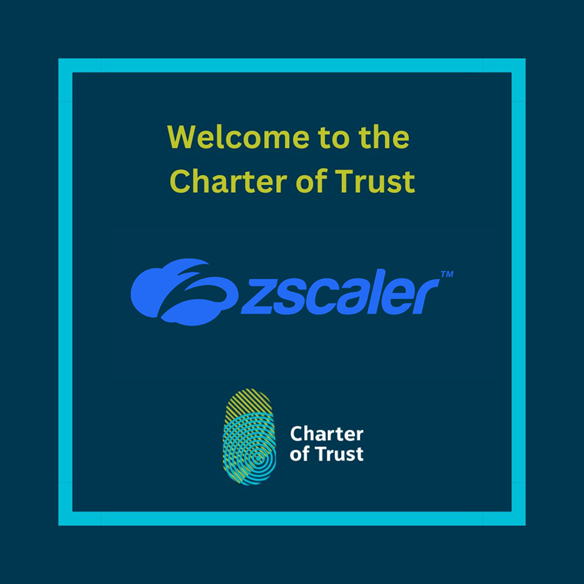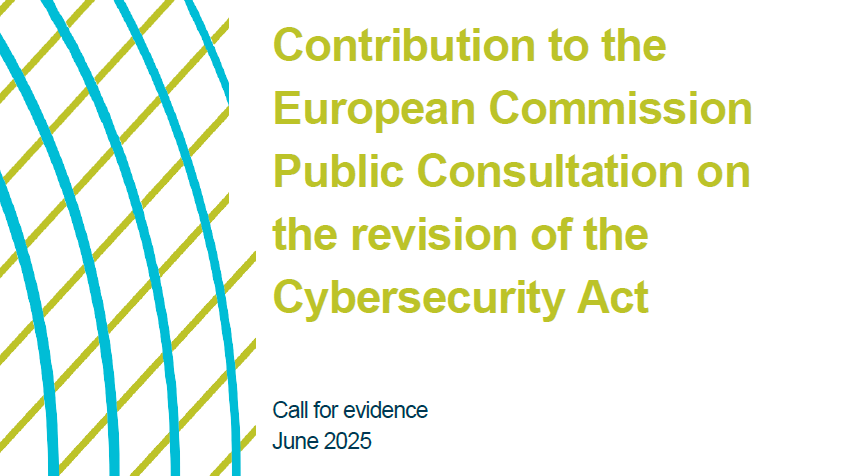In an effort to lead by example, the Partners of the Charter of Trust are pleased to present a collection of Principle Use Cases.
It is at the heart of the Charter’s mission to help build a more cyber-secure digital ecosystem and we believe our 10 Principles can serve as useful guidelines to companies around the globe to increase their cyber-resilience and future-proof their products and services.
Now, the Principle Use Cases by the Partners of the Charter of Trust offer a new way to see how the Principles can be applied in real life. In these Use Cases, the Partners illustrate the cyber challenges they faced and how the Principles helped them find effective solutions. We hope the Use Cases can inspire and enable others so we can build trust in digital technologies together.
So far, there are two Principle Use Cases available for consultation.
AES discusses their approach to on how to have companies increase the cybersecurity awareness of their employees and shares their take on implementing new and innovative training model that drives engagement.
Allianz shares their best practices concerning keeping employees aware of cyber risks and up-to-date with how to self-protect against cyber-attacks.
Atos shares their take on Threat Intelligence sharing and bringing together experts from various partners and why this is a smart move.
Bosch discusses what approach can businesses take to resolving problems concerning Artificial Intelligence by detailing their experience based on the VCIO approach.
IBM‘s contribution falls on the discussion of how can companies ramp up their cybersecurity capacities and upgrade skills to provide a confident response to incidents. IBM shares their take on how they trained their customers to be proactive responders.
Mitsubishi shares their take on developing a joint approach among partners to establish common cybersecurity awareness practices
NXP Semiconductors shares their take on the varied and diverse security risks with IoT devices and what solutions can be pursued, in particular the implementation of the high security standards for both critical suppliers and own products.
Siemens‘s contribution falls under the scope of the Charter of Trust’s Principle 2 “Responsibility throughout the digital supply chain”. Drawing from experience, Siemens shares its best practices and lessons learned concerning improving a cybersecurity posture.
TotalEnergies, in line with Charter of Trust’s Principle 2 “Responsibility throughout the digital supply chain”, shares on how they defined a cyber-governance covering their entire organisation.
Stay tuned for more insightful Use Cases to come.


You may also like

Charter of Trust Welcomes Zscaler
Zscaler is a leading cloud enterprise security provider helping global businesses accelerate their digital transformation by becoming more agile, efficient, resilient, and secure.
With Zscaler as a partner in the Charter of Trust, we aim to strengthen global cyber resilience through trust – by fostering actionable collaboration between industry leaders, governments, and public-private platforms. Zscaler brings robust expertise and innovation to the table, making it the ideal partner to drive this mission forward.
“Zscaler is excited to drive meaningful change alongside our new partners, laying a foundation of trust essential for successful digital transformation,” said Sam Curry, Zscaler CISO. “In today’s world, the need for reducing inherent trust and default access has never been greater. To truly stay ahead of ever-evolving threats, we must unite as a coalition of practitioners. Cyber attackers aren’t taking breaks, and with advancements like artificial intelligence, quantum cryptography, and emerging technologies on the horizon, collaboration is the key to securing the future.”
“We are proud to welcome Zscaler to the Charter of Trust. Their focus on cybersecurity innovation and commitment to openness reflect our shared ambition to create a safer, more resilient digital future. Together, we’ll strengthen trust, transparency, and security across the global digital landscape.” highlighted Dr. Summit Chada, Charter of Trust Co-Chair and COO Group Security & Business Lines CISO at Atos.
“With Zscaler as a Partner of the Charter of Trust, we believe that we can strengthen the global commitment to secure digital transformation by combining technological innovation with the Charter of Trust’s collaborative approach to cybersecurity leadership.” Ralf Schneider, Charter of Trust Co-Chair and Senior Fellow and Head of Cybersecurity and NextGenIT Think Tank at Allianz SE, welcomes Zscaler to the Charter of Trust.
We are excited to join forces and work together to advance digital trust and security across industries.

Contribution to the EU Commission Public Consultation on the revision of the Cybersecurity Act
We support Policy Option 2, which focuses on targeted regulatory measures that address key challenges without creating unnecessary complexity. In this context, we emphasize the need to enhance the role and resources of ENISA, to ensure effective implementation of both current legislation and the European Cybersecurity Certification Framework (ECCF).
Our recommendations aim to improve transparency, collaboration, and efficiency across the EU’s cybersecurity landscape. These include:
- Introducing clear timelines for the development of certification schemes.
- Enhancing stakeholder engagement throughout the process.
- Establishing more structured communication channels between ENISA, the Stakeholder Cybersecurity Certification Group (SCCG), and sectoral ISACs (Information Sharing and Analysis Centers).
We call for a stronger ECCF, one that is transparent, inclusive, and aligned with international standards to foster global interoperability and ease compliance for organizations across borders. Equally critical is the harmonization of certification practices across EU member states and the mutual recognition of certifications to minimize regulatory fragmentation.
The Charter of Trust advocates for technically robust, standards-based certification schemes, with well-defined roles and responsibilities. We also stress the need for clarity on the interplay between voluntary and mandatory certifications, particularly in relation to the upcoming Cyber Resilience Act (CRA).
To streamline compliance and reduce administrative burden, we propose a unified, risk-based incident reporting regime that consolidates requirements under regulations such as NIS2, CRA, GDPR, and DORA. This would not only simplify reporting for organizations but also enhance the EU’s overall cyber resilience. In addition, we recommend incorporating liability protections and grace periods for incident disclosure.
Finally, we urge the Commission to strengthen supply chain security by adopting a risk-based classification approach and establishing baseline cybersecurity requirements for ICT suppliers.
The Charter of Trust remains fully committed to supporting the European Commission in shaping a secure, resilient, and trusted digital future for Europe. We look forward to continued collaboration in building a cybersecurity framework that meets the needs of all stakeholders, today and in the years to come.




